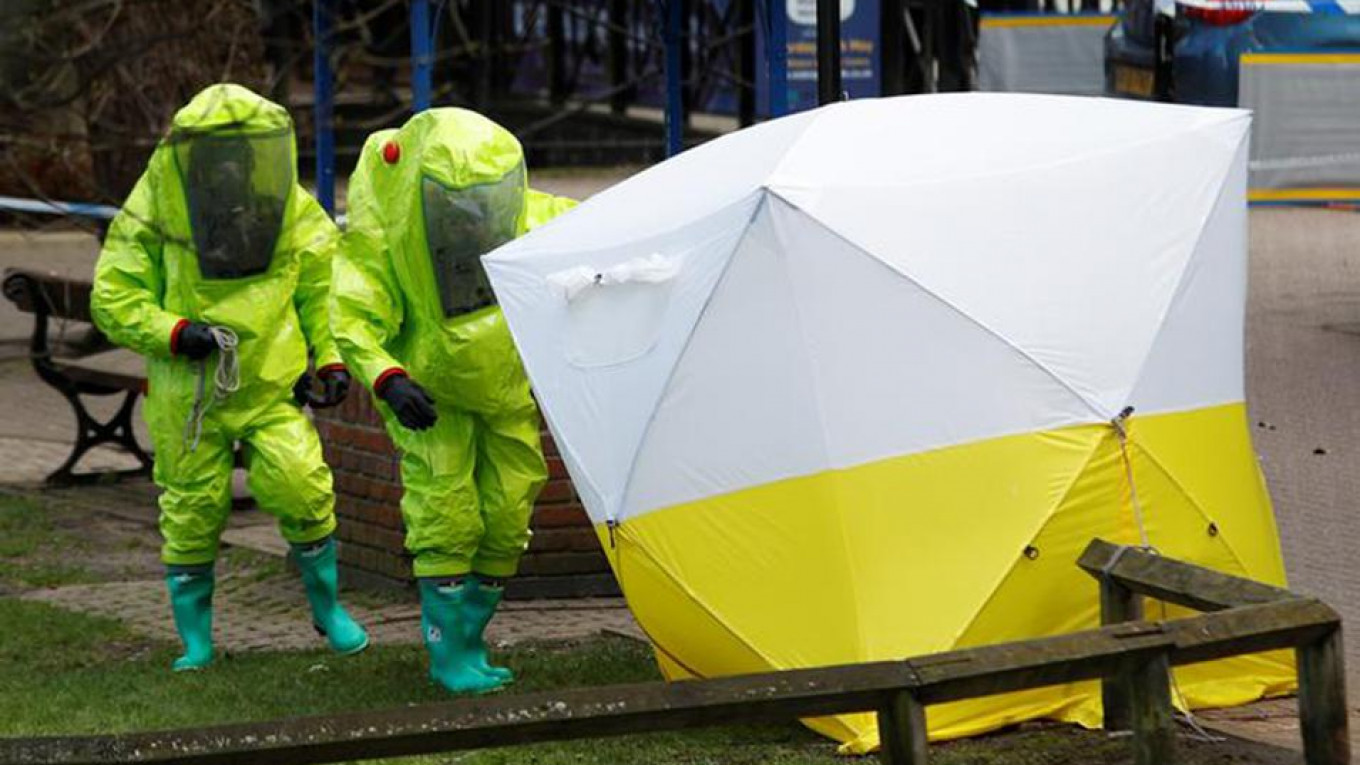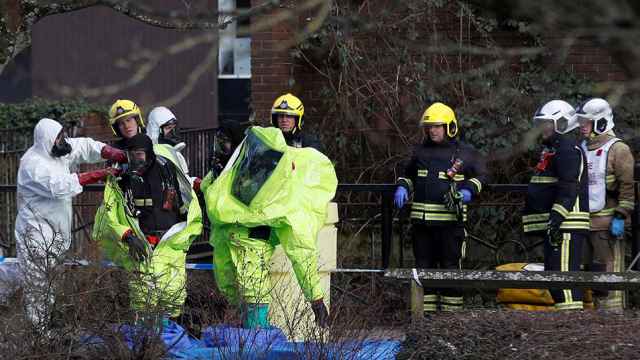The military-grade nerve toxin that poisoned former Russian agent Sergei Skripal was planted in his daughter's suitcase before she left Moscow, The Telegraph newspaper reported, citing unidentified sources.
Skripal, 66, and his daughter Yulia, 33, were found slumped unconscious on a bench outside a shopping centre in the genteel southern English city of Salisbury on March 4. They have been in a critical condition in hospital ever since.
Yulia Skripal flew to London from Russia on March 3, according to counter-terrorism police.
British investigators are working on the theory that the toxin was impregnated in an item of clothing or cosmetics or in a gift that was opened in Skripal's house in Salisbury, the Telegraph said, citing the unidentified sources.
Britain has said the toxin, which also poisoned a British police officer who attended the scene, was Novichok, a lethal nerve agent first developed by the Soviet military.
After the first known offensive use of such a weapon on European soil since World War Two, Britain has pinned the blame on Moscow and given 23 Russians who it said were spies working under diplomatic cover at the London embassy a week to leave.
Britain, the United States, Germany and France jointly called on Russia on Thursday to explain how the toxin came to be used on British soil. Russia has denied any involvement and has accused London of whipping up anti-Russian hysteria.
A Message from The Moscow Times:
Dear readers,
We are facing unprecedented challenges. Russia's Prosecutor General's Office has designated The Moscow Times as an "undesirable" organization, criminalizing our work and putting our staff at risk of prosecution. This follows our earlier unjust labeling as a "foreign agent."
These actions are direct attempts to silence independent journalism in Russia. The authorities claim our work "discredits the decisions of the Russian leadership." We see things differently: we strive to provide accurate, unbiased reporting on Russia.
We, the journalists of The Moscow Times, refuse to be silenced. But to continue our work, we need your help.
Your support, no matter how small, makes a world of difference. If you can, please support us monthly starting from just $2. It's quick to set up, and every contribution makes a significant impact.
By supporting The Moscow Times, you're defending open, independent journalism in the face of repression. Thank you for standing with us.
Remind me later.







